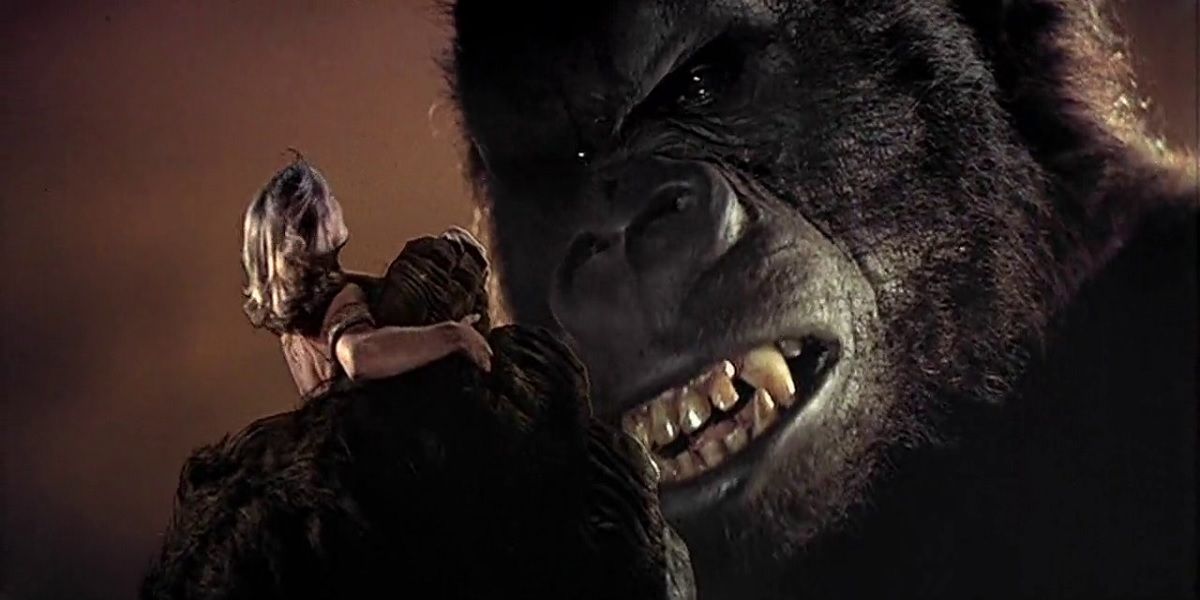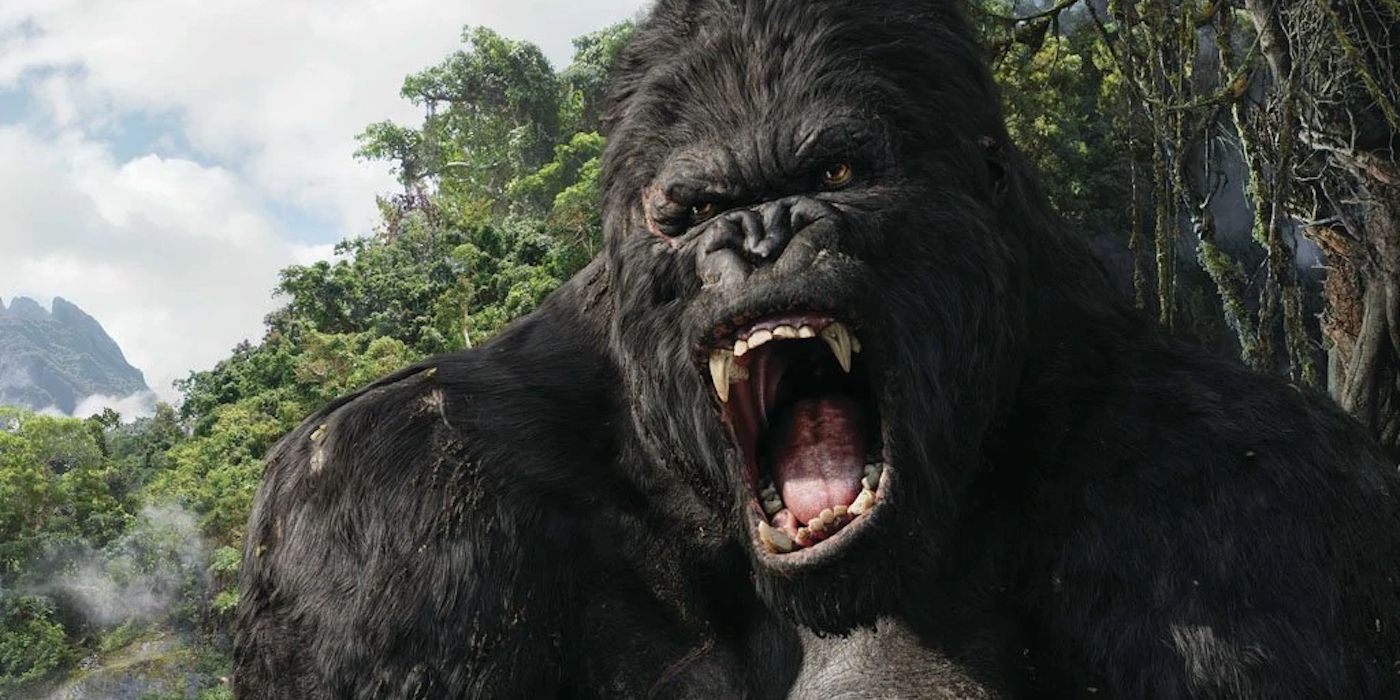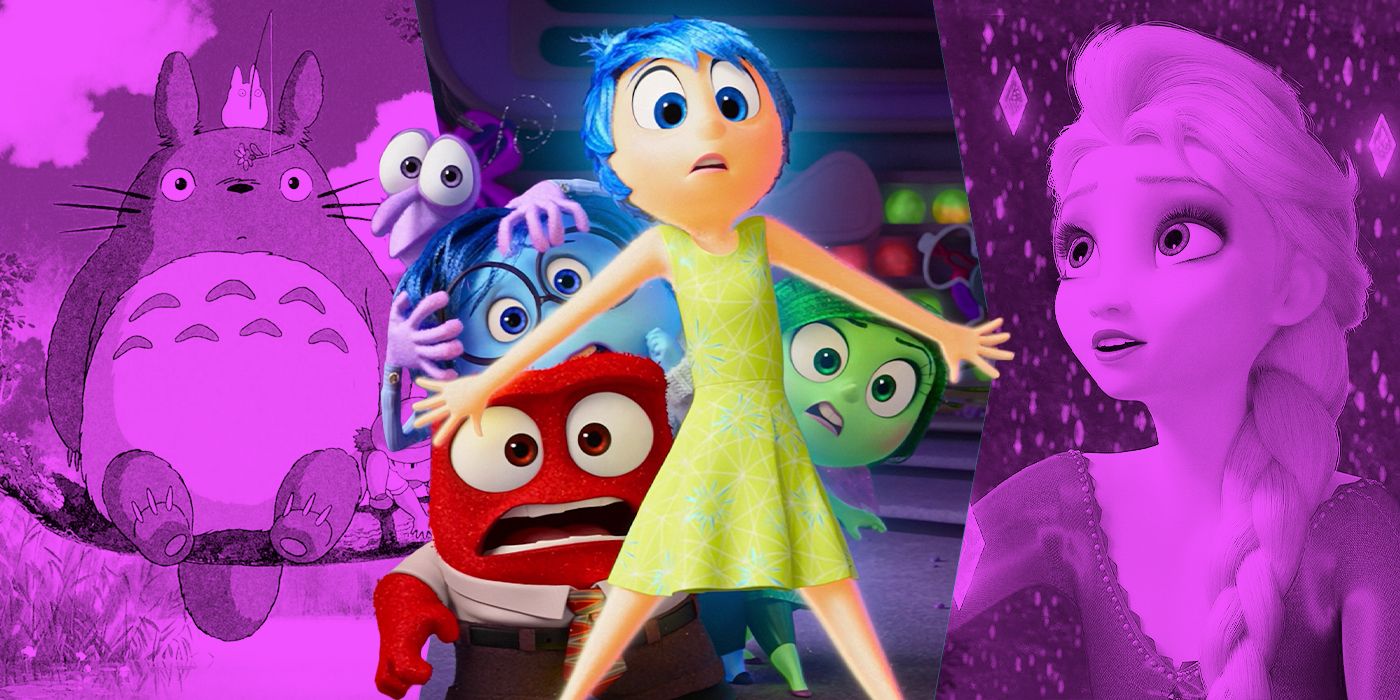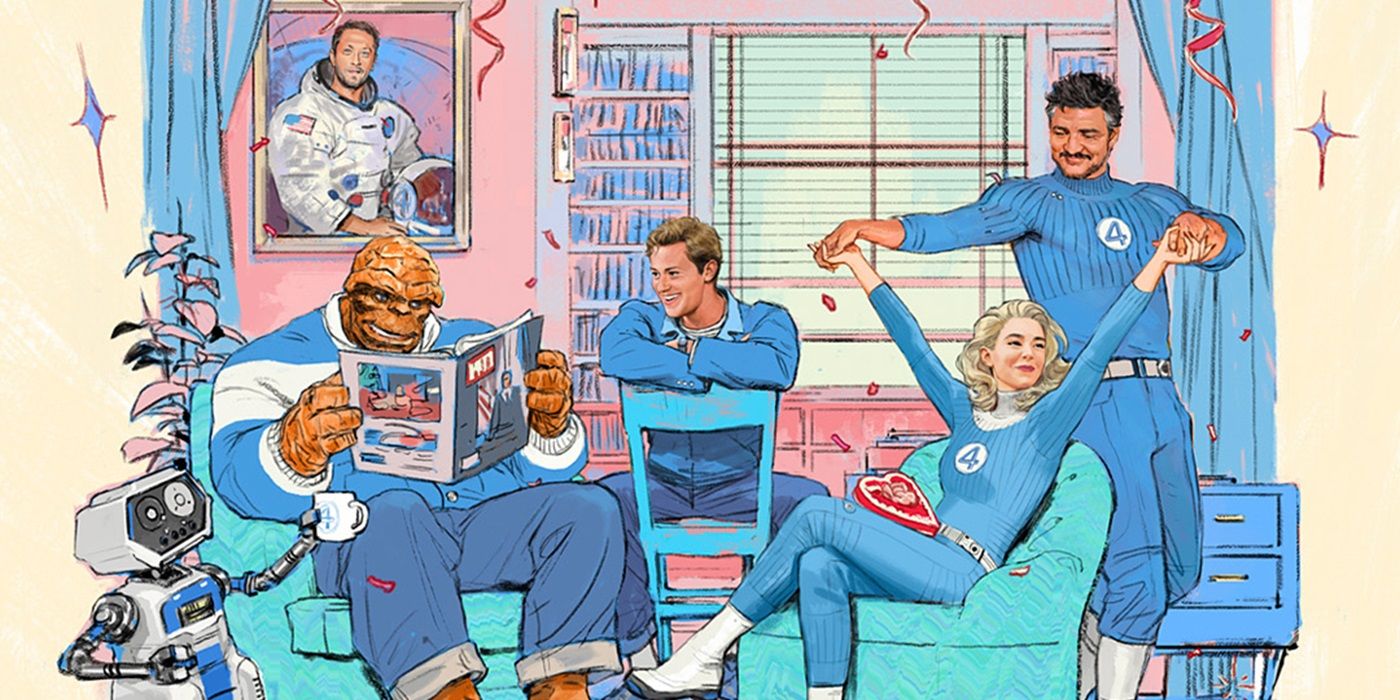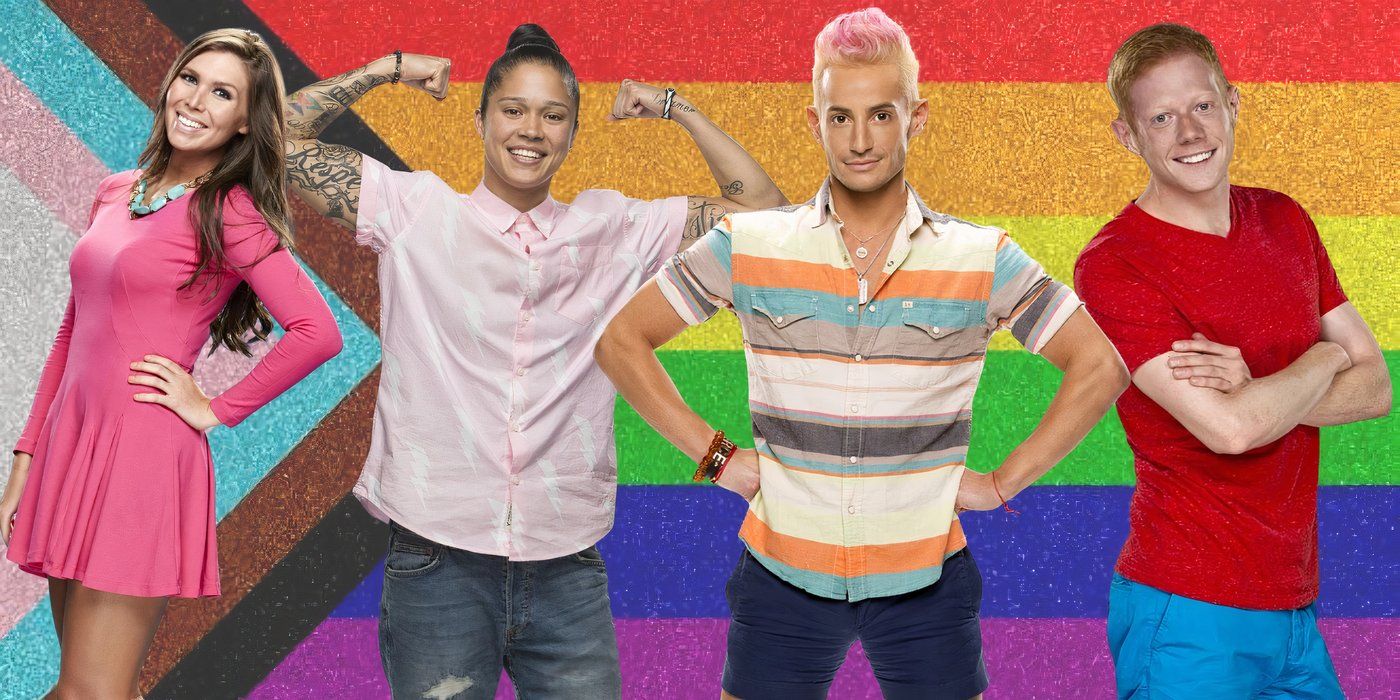The Big Picture
- The creation of the game Donkey Kong involved copyright infringement issues, as Nintendo had originally planned to base the game on Popeye but couldn’t obtain the license.
- Universal Studios sued Nintendo, claiming that Donkey Kong was an infringement on their copyrights to the movie King Kong.
- Despite Universal’s initial strategy to intimidate Nintendo into settling, Nintendo’s attorney Howard Lincoln successfully defended the case, proving that Universal’s copyright claim to King Kong was hypocritical. Universal lost the case and had to pay damages to Nintendo.
In 2023’s The Super Mario Bros. Movie, Mario (Chris Pratt) and Donkey Kong (Seth Rogen) have a friendly rivalry. Yet it wasn’t so long ago that Mario wasn’t yet Mario, but “Jumpman,” and Donkey Kong kidnapped Jumpman’s girlfriend, taking her to the top of a construction site. To make matters worse, Jumpman’s attempts to rescue her meant avoiding rolling barrels the infuriated ape kept hurling towards him. But anyone could try to make the rescue for only a quarter. Making its debut in arcades on June 2, 1981, Donkey Kong was a success from the get-go. It was one of the first arcade games to have a humorous narrative, the first of the platform games, and it pushed Nintendo into becoming one of the giants of American video games. Nintendo even caught the attention of Universal Studios, but not for the purpose of making a film. They actually already had the rights to a film with a giant ape that kidnaps a girl, a little movie you may have heard about called King Kong, and they felt strongly enough that Nintendo was infringing on their property that they promptly sued Nintendo.
Nintendo’s ‘Donkey Kong’ Had Already Fought a Copyright Battle
During its creation, Donkey Kong had already courted copyright infringement. Nintendo video game designer Shigeru Miyamoto, an icon in the gaming community, had originally intended to create a game based on Popeye, where the spinach-powered sailor would rescue Olive Oyl from a barrel-throwing Bluto. Unfortunately – or fortunately, depending on which side of the half-glass you fall on – Popeye‘s copyright lawyers stopped the game from coming to fruition. Denied the licensing for the Popeye characters, Miyamoto kept the game premise but changed the characters to Jump Man, Pauline, and Donkey Kong. As far as naming is concerned, “Kong” is the only real direct relation to the movie due to its immediate recognition as an ape, with “Donkey” added because it was an English word meaning stubborn and stupid (and not a translation error as has often been rumored).
The game was released shortly after producer Dino De Laurentiis‘ King Kong remake in 1976, which itself was fraught with rights issues. Universal was already keeping an eye on the video game business for synchronous opportunities to utilize, so it didn’t take long before Sid Sheinberg, president of MCA and Universal City Studios, and Robert Hadl, a top lawyer with the company, decided that Donkey Kong was an infringement. Universal didn’t attack Nintendo right away but instead went after a smaller fish first. Video game company Coleco had been licensing Donkey Kong in the US for ColecoVision, their home console. In April 1982, after Sheinberg threatened to sue Coleco, Coleco president Arnold Greenberg agreed to a 3% royalty on the net sales price of Donkey Kong.
It’s Universal’s Kong vs. Nintendo’s Kong in Court
With one victory under its belt, Universal then turned its attention to Nintendo. Despite Donkey Kong‘s early success, Nintendo was still very much a new kid on the block, having only just settled into Seattle from Japan. Universal planned to use this to its benefit, using its status as a corporate giant to make Nintendo shake in its boots and concede defeat. It was actually a good, albeit unethical, strategy that almost worked, with Minoru Arakawa, head of Nintendo’s US operations, leaning towards a settlement. Yet in an industry rife with films about everyday Davids beating corporate Goliaths, it’s almost deviously ironic that Universal would be taken down spectacularly by one man: Nintendo attorney Howard Lincoln and he wasn’t going for a settlement.
As told in the previously cited Vice article, something about Universal’s copyright claim to King Kong didn’t sit right with Lincoln, but he didn’t have to dig too far to figure it out. It seems that when Universal was looking at making a new King Kong film in the mid-’70s, the company argued that King Kong had become part of the public domain, and as such RKO had no grounds on which to charge them with copyright infringement. The judge ruled that the original King Kong novel from which the 1933 film was based was indeed part of the public domain, so as long as Universal didn’t infringe on the parts of the 1933 film that were under copyright, they were free to make a Kong film. Long story short – public domain was okay when it suited Universal, but when it didn’t suit Universal, they claimed copyright infringement. Lincoln found Universal’s Achille’s heel.
The ‘Donkey Kong’ Suit Did Not End Well for Universal, but That Was Then
So when the case finally went to court, Lincoln was prepared – to put it mildly. He had tons of evidence that proved that Nintendo wasn’t infringing on anything, and by even having brought forward the suit, Universal was being hypocritical. US District Court Judge Robert W. Sweet agreed, deciding that Universal couldn’t claim the rights to King Kong, and more specifically, Donkey Kong had absolutely nothing to do with King Kong whatsoever. And it went downhill from there. As per Vice, the judge found that Tiger Electronics’ King Kong handheld game, which was licensed under Universal, looked far too close to… yep, you guessed it. Donkey Kong. As a result, not only did Universal lose the original case, but now Nintendo was given the option of taking Universal’s licensing fees for the handheld game. Nintendo settled for statutory damages of $56,689.41, plus legal fees.
Universal did try to appeal a couple of times, but those appeals were just as successful for them as the original hearing. Nintendo would go on to take Jumpman to new heights as Mario, with Donkey Kong taking a backseat to the popular plumber, for the most part. Universal would go on to finally realize their pursuit of a King Kong remake with director Peter Jackson‘s 2005 three-hour epic and would add “King Kong 360 3-D”, an immersive 3-D experience, to their famed Studio Tour in 2011. Whatever bad blood may have emerged from the Universal/Nintendo legal battle of 1982 has been reconciled, with Universal distributing The Super Mario Bros. Movie through its Illumination animation studio. Clearly, nothing rebuilds friendship bridges like $1.3 billion worldwide.


